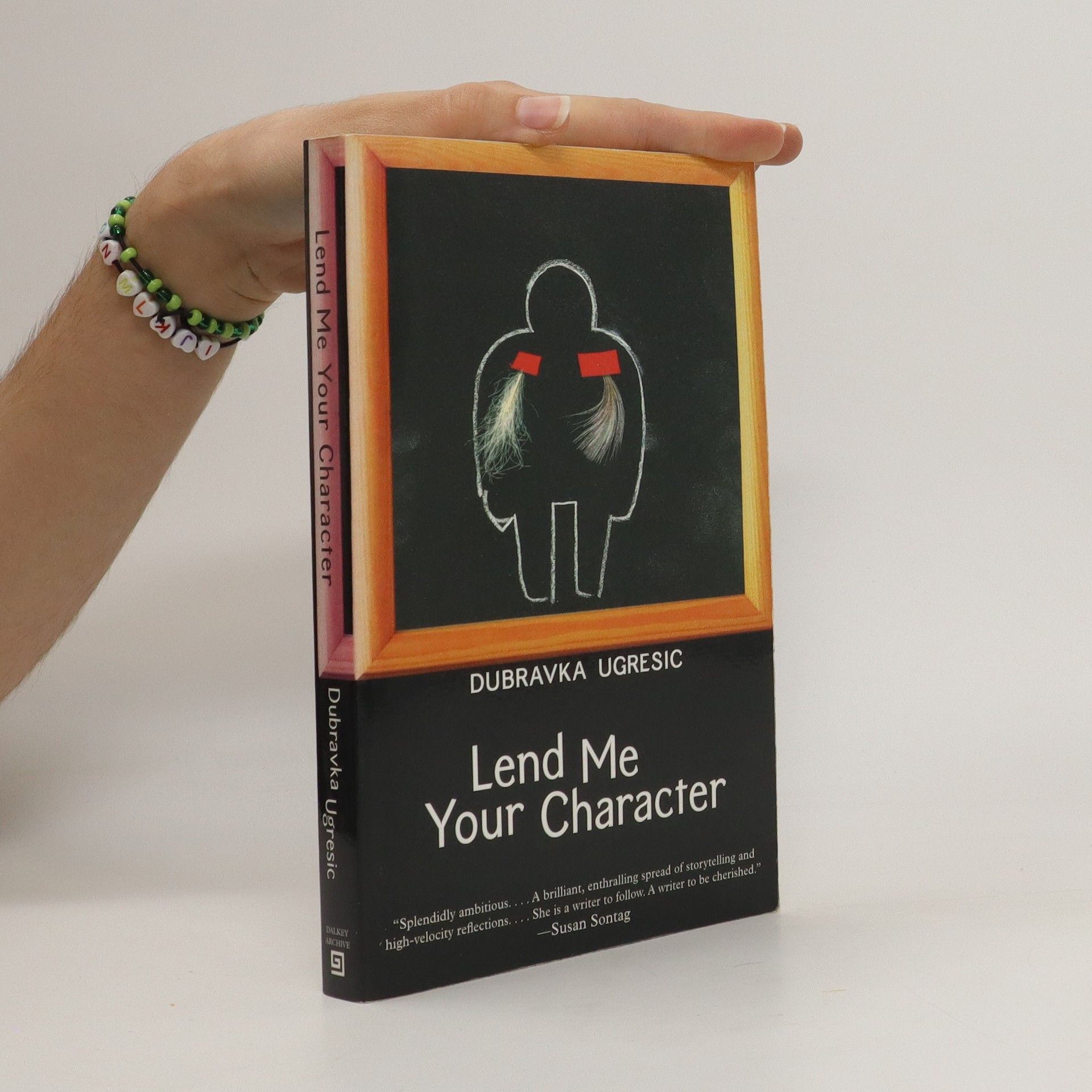The Age of Skin
- 220 páginas
- 8 horas de lectura
From one of Europe's premier essayists and cultural critics, a new collection about our troubling political times
Dubravka Ugrešić fue una reconocida autora que entrelazó magistralmente la ficción y la erudición literaria. Su obra temprana incluyó libros infantiles, pero pronto se volcó a exploraciones profundas de las vanguardias literarias y la prosa contemporánea. La propia ficción de la autora, incluyendo novelas y cuentos, obtuvo un reconocimiento significativo en Yugoslavia e inspiró adaptaciones cinematográficas. Tras el estallido de la guerra en Yugoslavia, Ugrešić adoptó una firme postura antinacionalista y pacifista, que influyó en sus ensayos críticos. Conocidas por su voz única y perspicaces reflexiones sobre la sociedad y la cultura, sus obras han sido traducidas a más de veinte idiomas y han recibido varios premios literarios europeos importantes.







From one of Europe's premier essayists and cultural critics, a new collection about our troubling political times
The Culture of Lies is one of the most intelligent and lucid accounts of an appalling episode in history. It shows us the banality and brutality of nationalism and the way that nationalistic ideology permeates every pore of life. Ugresic's acerbic and penetrating essays cover everything from politics to daily routine, from public to private life. With a diverse and unusual perspective, she writes about memory, soap operas, the destruction of everyday life, kitsch, the conformity of intellectuals, propaganda and censorship, the strategies of human manipulation and the walls of Europe which, she argues, never really did fall. Shot through with irony and sadness, satirical protest and bitter melancholy, The Culture of Lies is a gesture of intellectual resistance by a writer branded "a traitor" and "a witch" in Croatia.
The Museum of Unconditional Surrender—by the renowned Yugoslavian writer Dubravka Ugresic—begins in the Berlin Zoo, with the contents of Roland the Walrus's stomach displayed beside his pool (Roland died in August, 1961). These objects—a cigarette lighter, lollipop sticks, a beer-bottle opener, etc.—like the fictional pieces of the novel itself, are seemingly random at first, but eventually coalesce, meaningfully and poetically.Written in a variety of literary forms, The Museum of Unconditional Surrender captures the shattered world of living in exile. Some chapters re-create the daily journal of the narrator's lonely and alienated mother, who shops at the improvised flea-markets in town and longs for her children; another is a dream-like narrative in which a circle of women friends are visited by an angel. There are reflections and accounts of the Holocaust and the Yugoslav Civil War; portraits of European artists; a recipe for Caraway Soup; a moving story of a romantic encounter the narrator has in Lisbon; descriptions of family photographs; memories of the small town in which Ugresic was raised.Addressing the themes of art and history, aging and loss, The Museum is a haunting and an extremely original novel. In the words of the Times Literary Supplement, "it is vivid in its denunciation of destructive forces and in its evocation of what is at stake."
First new novel in almost a decade from one of Europe's most inventive, boundary-pushing, feminist authors.
The pieces collected in Lend Me Your Character—the novella "Steffie Cvek in the Jaws of Life" and a collection of short stories entitled Life Is a Fairy Tale— solidify Dubravka Ugresic's reputation as one of Eastern Europe's most playful and inventive writers. From the story of Steffie Cvek, a harassed and vulnerable typist whose life is shaped entirely by clichés as she searches relentlessly for an elusive romantic love in a narrative punctuated by threadbare advice from women's magazines and constructed like a sewing pattern, to "The Kharms Case," one of Ugresic's funniest stories ever about the strained relationship between a persistent translator and an unresponsive publisher, the pieces in this collection are always smart and endlessly entertaining.
Ugresic, ever the flaneur, wanders from the Midwest to Zuccotti Park, the Irish Aran Islands to Jerusalem's Mea Shearim, from the tristesse of Dutch housing estates to the riots of South London, charting everything from the listlessness of Central Europe to the ennui of the Low Countries. One finger on the pulse of an exhausted Europe, another in the wounds of post-industrial America, Ugresic trawls the fallout of political failure and the detritus of popular culture, mining each for revelation.
Tanja Lucic teaches at the University of Amsterdam and lives on the edge of the city's red light district. She and her pupils, fleeing the violent break-up of their homeland Yugoslavia, have found temporary refuge in the Department of Slavonic Languages.
"Baba Yaga Laid an Egg takes a traditional myth and spins it afresh. The result is an extraordinary meditation on femininity, aging, identity, secrets and love."--Taken from jacket front flap
Antipolitické eseje. "Doby velkých pravd bývají obvykle hluboce proniknuty všudypřítomnou kulturou lži," píše v titulním eseji knihy, jíž se snaží vyrovnat s dědictvím zániku Jugoslávie a následujícího válečného konfliktu v Charvátsku a Bosně, charvátská spisovatelka Dubravka Ugrešićová. Svazek "antipolitických" esejů a črt představuje Ugrešićovou jako nesmlouvavou komentátorku, jež přemýšlivě a s odvahou i smyslem pro ironii analyzuje podstatu a rozmanité projevy charvátského poválečného nacionalismu, všeprostupující ideologizaci i svůj osud exulanta, pochybujícího uprostřed integrující se, avšak stále rozdělené Evropy o vlastní identitě.
Die Kultur der Lüge entstand als Reaktion auf den Zerfall Jugoslawiens, auf den unseligen Krieg in Kroatien wie in Bosnien. Die Essays analysieren, was in Ex-Jugoslawien geschieht: Aggression gegen den eigenen »Bruder«; künstlich herbeigeführte Amnesie; Rekurs auf nationalfaschistische Ideologien; Propaganda und Zensur; Folklorekitsch als Kultur der Lüge; Schriftsteller und Intellektuelle im Strudel des Nationalismus."